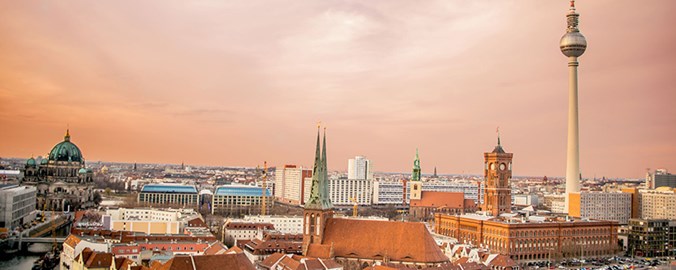
Is Germany's Housing Boom about to go bust?
After decades of minimal growth, Germany's residential real estate market has experienced unprecedented boom times, but is this boom about to end? It's a question that has worried economists and real estate experts for quite some time now. So have the good times come to an end for property investors?
German urban Boom ends as Investors head out of Cities
A recently published study by the Zentrale Immobilien Ausschuss (ZIA - Germany's Central Real Estate Association) looked at the first quarter of this year and concluded that the trend for unlimited price increases in cities like Munich, Hamburg and Cologne was decidedly at an end.
Prices had reached dizzying heights - Munich saw increases of ca. 75 per cent. While prices for properties in German cities still lag far behind those of London, Paris and New York, for German investors they have risen far too much, as rents have not kept pace with house value gwains.
However, prices in the German countryside and in small towns with good road and rail links to larger cities are still surprisingly cheap by comparison with other countries. For example, an older four bedroomed detached house in Traben Trabach in the beautiful Rhineland Palatinate can cost as little as 84,000 euros. A brand new house in the same region starts at around 259,000 euros.
By contrast, a one bedroom ground floor flat in Berlin's Tiergarten district costs ca. 327,700 euros. In Munich a luxury two-bedroom penthouse starts at 3,540,000 euros, while an older, fairly modest two-bedroom town house starts at 660,000 euros in Bavaria's capital.
There are also huge differences in price, depending on whether one buys north or south of the Elbe River. Anywhere in Schleswig Holstein ("that bit below Denmark") is expensive by comparison with, say, property in the Saarland region. This is because Germans love their seaside holidays, and one is never far away from a sandy beach in Schleswig-Holstein.
A modest two-bedroom apartment in a small town like Ahrensburg will therefore cost 293,800 euros, even though there's not an awful lot of work in the region. Prices are relatively high because people can still commute to Hamburg from here. This is also true for the ancient city of Lübeck, where the entire city centre is a UNESCO World Heritage Site. The city has excellent road and rail links with Hamburg, making it a sought-after location at the Baltic Sea.
While renting a modern apartment with four rooms and 128 square metres of living space will cost around 1,155 euros per month, buying such a property will cost at least 510,000 euros in Lübeck.
Downsize to neighouring small town Bad Schwartau, a 15-minute drive down the coast from Lübeck, and an apartment with 77 square metres floor space and four rooms starts at 90,000 euros. Renting the same size property costs between 720 and 755 euros a month.
Many of Germany's regional towns are now seeing far greater demand, as first-time buyers and investors are equally priced out of cities. Affordable German holiday homes and cheap apartments for sale in Germany can still be found in many rural areas though, most notably in sparsely populated Saarland and in Baden-Württemberg. Both federal states lie south of the Elbe River and are part of Germany's famous wine-producing region. As the housing market is cooling off in cities, investors could still look to good rental yields and future capital gains in Germany's hinterland.



